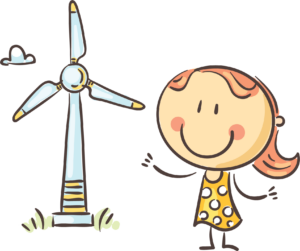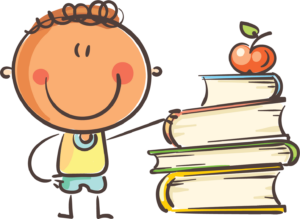Queens, NY Science Hall builds a space the community desires
NYSCI Neighbors, the New York Hall of Science’s community outreach arm and backbone of the Queens STEM Ecosystem, dedicates serious manpower to its community outreach programs in areas of the planning and on-going feedback.
 As the most ethnically diverse urban areas in the world, with as many as 800 languages spoken, Queens, NY is home to immigrant families from all over the world. Engaging so many different cultures can be a daunting task, but the STEM Ecosystem has mastered community engagement in the most authentic way.
As the most ethnically diverse urban areas in the world, with as many as 800 languages spoken, Queens, NY is home to immigrant families from all over the world. Engaging so many different cultures can be a daunting task, but the STEM Ecosystem has mastered community engagement in the most authentic way.
“Deep continuous conversations with our borough families, community liaisons and schools are the only reason we have been so successful,” says Andres Henriquez, NYSCI vice president of STEM learning and ecosystem lead. “We listen to what the community wants and accommodate our space and programming accordingly.”
Listening sessions have made the science hall a welcoming, informative and fun space for the entire family – aunts, uncles, cousins and grandparents. Families asked for opportunities to learn English and more about the American school system, which have now become top priorities for NYSCI.
A foundation of trust
To develop foundational levels of trust, NYSCI holds at least two to three events throughout the year just to listen to families. Local principals and school coordinators are included in these listening events as trusted community brokers, working with families on a regular basis.
 “Staffing changes are common within schools, which can fracture consistent communication with the families that attend them,” says Henriquez. “To stay consistent, especially with the schools further away, we table often to introduce the science hall to families as well as new school leadership. By opening our doors for community celebrations throughout the year we have a place and event to invite families to when they meet us at those tables.”
“Staffing changes are common within schools, which can fracture consistent communication with the families that attend them,” says Henriquez. “To stay consistent, especially with the schools further away, we table often to introduce the science hall to families as well as new school leadership. By opening our doors for community celebrations throughout the year we have a place and event to invite families to when they meet us at those tables.”
NYSCI hosts two to four annual community celebrations, end of year gatherings and opens its library to encourage more visitors throughout the year. These events include, free movie nights, as creative ways to stay connected with families during the summer.
Breaking down career pathways
Coming from Mexico, Colombia and Ecuador, local parents want their young people to have access to careers that would allow them to achieve the high aspirations their parents have held for them as they came to the United States.
Being a museum, NYSCI exercises more freedom for students to learn STEM skills and about different jobs in ways they don’t always get to experience in schools. The ecosystem works to debunk STEM for families and make their aspirational careers more accessible.
“STEM is not just a man in a white lab coat,” says Henriquez. “STEM careers are so broad from engineering at music or TV stations, to healthcare. New York is the type of place where so many different jobs exist, and skill sets are needed. For example, a STEM job could be working on all the repairs for the Metropolitan Transit Authority, MTA.”
Addressing critical transitions
NYSCI’s Parent University provides programming to address critical transitions families are concerned about.
“Questions like, ‘What do I need to know to get my child into preschool?’ and ‘How do I get my child into a good high school?’ are covered in this body of work,” says Henriquez. “We also help parents navigate Individualized Education Plans (IEP) for students – so many families don’t understand what this means in the system and we teach them how to advocate for their kids.”
STEM at home
The ecosystem shows families they are already doing STEM at home. “We break STEM down to connect learning to the things they do on a daily basis and with examples relevant to their lives,” says Henriquez.
 Tiered programming meets families where they are with introductory level programs like the Parent Ambassador program, which brings approximately 30 families together at a time for lessons in basic concepts within science, technology, engineering and math that families are doing at home.
Tiered programming meets families where they are with introductory level programs like the Parent Ambassador program, which brings approximately 30 families together at a time for lessons in basic concepts within science, technology, engineering and math that families are doing at home.
At the later tiers, the families are exposed to advanced levels of STEM learning with Makerspace workshops.
NYSCI partners with Spanish language television stations to enter homes further simplify STEM concepts, connecting learning with everyday life.
See NYSCI Neighbor television segments here and here.
Constant reflection keeps programming relevant to the community
NYSCI reflects regularly on its offerings to the community and asks for feedback every chance they get. To assist with this, a set of interview protocols have been developed to gather feedback on what is working and what parents don’t like.
“We have tried a few different ways to gather feedback, with varying degrees of success,” says Henriquez. “We haven’t gotten it right yet but continue to learn about what works and what doesn’t so that we make sure we have open lines of communication with families. It’s important we check-in along the journey and get families what they need to ensure their child’s success.”
Key Take-Aways:
- Take the time to build trust with the community and families you serve.
- Get feedback from your community often, which might take significant manpower and a few times to get right.
- Make connections to things families are already doing at home.
- Include the whole family. STEM is for everyone, not just students and parents.
NYSCI NEIGHBORS
The NYSCI Neighbors is a program operated out of the more than fifty-year-old New York Hall of Science located in Corona, Queens, NY. NYSCI Neighbors is a hyper local initiative working with mostly first-generation Latino families, in addition to partnerships with nonprofits, twenty K-8 schools and three high schools.
NYSCI Neighbors is a multifaceted program of community work in which NYSCI is collaborating with local stakeholders to build a rich ecosystem of STEM educational opportunities for educators, young people, and families in Corona, Queens.
